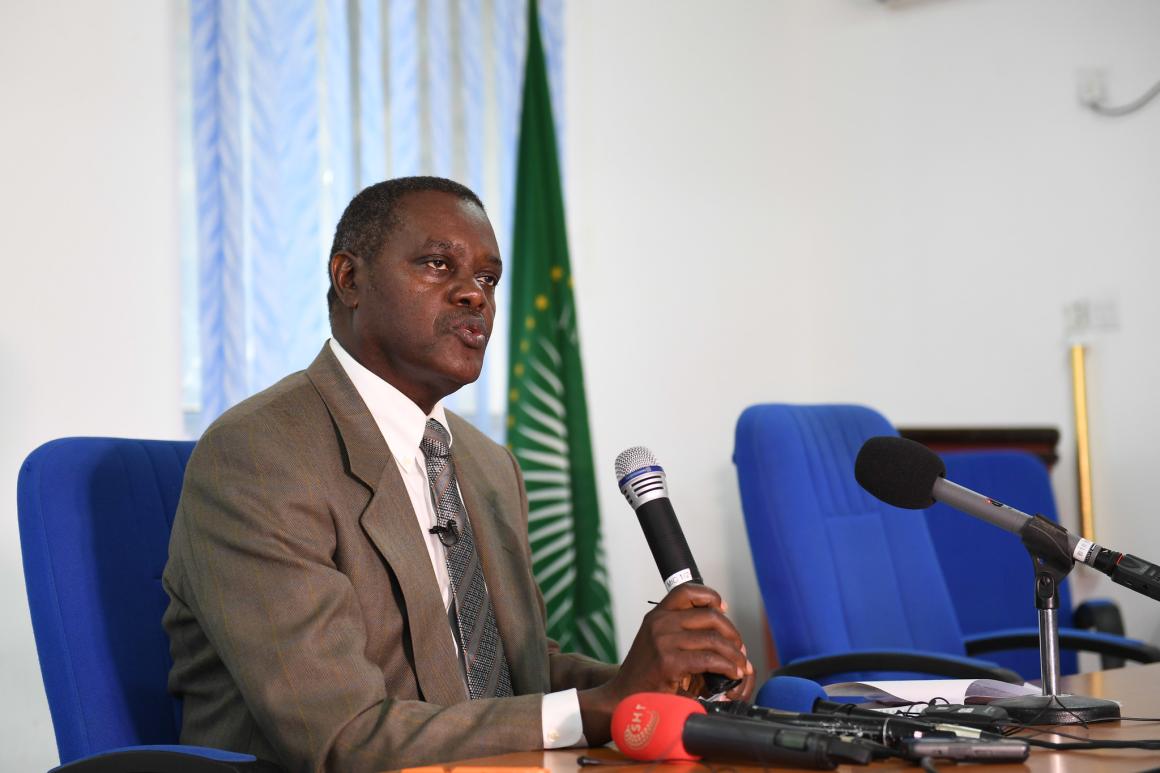Mogadishu - Despite “considerable progress” in its political, economic, social and human rights situation over the past six years, “there is much more to do” in Somalia, a United Nations expert said today, while calling on the international community and Somali authorities for greater effort in various areas.
“I urge the international community and Federal Government of Somalia to address the negative effects of climate change on the population, and ensure access to basic human rights such as water supply, health services and education for all children, in particular girls,” said the UN Independent Expert on the situation of human rights in Somalia, Bahame Tom Nyanduga said at a media briefing in Mogadishu.
Mr. Nyanduga also called on the international community to continue helping Somalia strengthen its federal and state institutions and enhance access to basic human rights.
The Independent Expert was speaking on the last day of a 12-day visit, which saw him meet with top officials of the federal government, legislators, members of civil society, trade unionists and officials of the UN and the African Union Mission in Somalia (AMISOM) among others. He also visited Hargeisa and held talks with the leadership of Somaliland.
“I have witnessed the recovery of territory, major towns and cities, the diminishing of Al-Shabaab capability by the Somali security institutions, AMISOM troops and bilateral forces,” he said.
Impact of conflict
In his remarks to the media, the UN Independent Expert noted that although significant progress had been made in the country's stabilization process, more needs to be done on security and access to basic human rights, as well as climate change, to help improve livelihoods.
He emphasized that Somalia's continuing conflict and other socio-cultural and economic challenges were hindering the enjoyment of basic rights and must be addressed by the federal authorities and their international partners.
“Somalia also faces many other challenges including the continuing conflict, inequality, discrimination and youth unemployment, as well as delivering economic, social and cultural rights,” he said.
Despite the challenges faced, Mr. Nyanduga noted that the Federal Government of Somalia and the country’s Federal Member States were enhancing access to basic human rights, including health, water and education for the residents.
“The increasing enrolment of girls in schools,” he said, “is a good development for the realization of women's rights in Somalia.”
Commission concerns
However, the UN Independent Expert expressed concern at the delay in the operationalization of the country’s National Human Rights Commission and lack of progress on the enactment of the Sexual Offences Bill. He urged the federal authorities and the federal parliament to prioritize the matter to enhance the protection of human rights in the country.
Mr. Nyanduga welcomed the establishment of Alternative Disputes Centres, which play a key role in the settlement of civil cases at the community level.
He also expressed satisfaction with the ongoing constitutional review, but urged the federal government to come up with a specific mechanism to guarantee representation of women, youth and other vulnerable groups.
“I urge the federal parliament to ensure that they add clear provisions and specific mechanism in the electoral law to protect women quota in parliament … rather than leaving this to the electoral commission,” he said.
The UN Independent Expert’s findings will be presented in a comprehensive report to the Geneva-based UN Human Rights Council in September this year.
Independent Experts like Mr. Nyanduga are part of the Council's so-called Special Procedures, which have such experts work on a voluntary basis - they are not UN staff and do not receive a salary for their work, on top of being independent from any government or organization and serving in their individual capacity.







